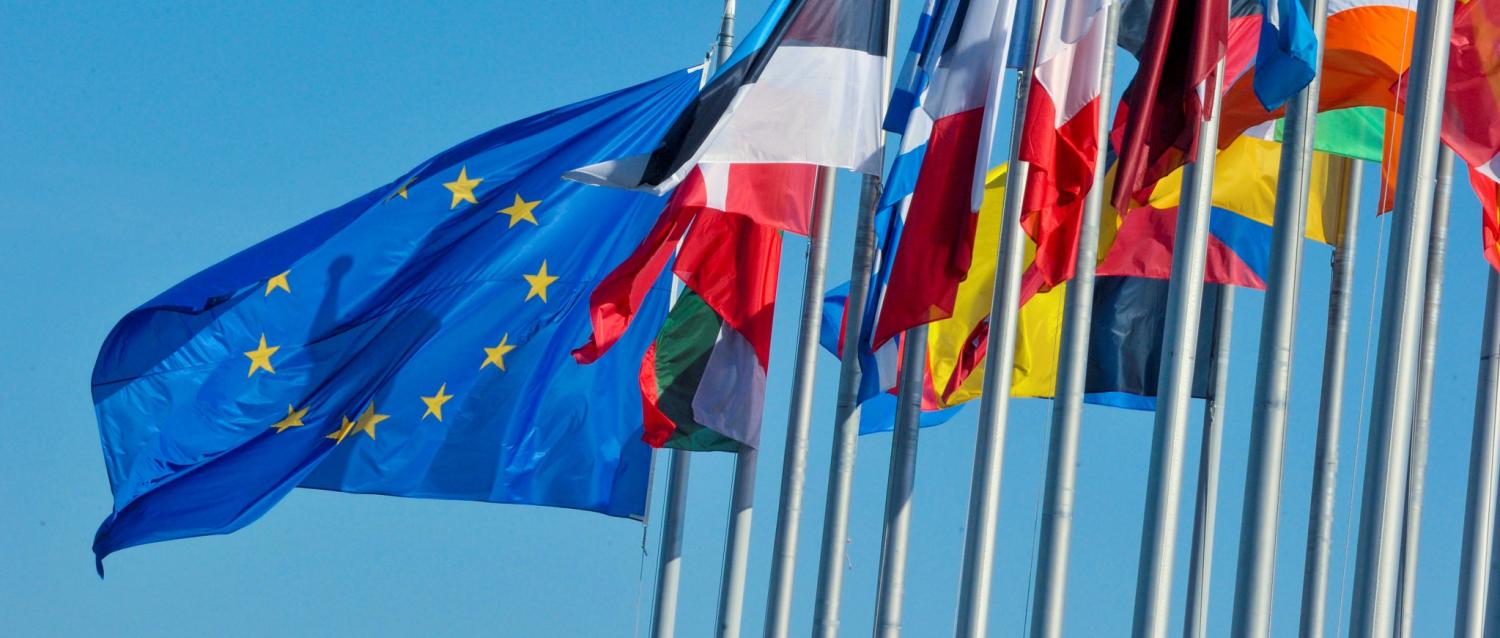Three major recent developments appear to indicate that the EU, at long last, is on the up again: solid growth in the EU; the populist wave apparently cresting with Brexit and the Trump Administration; and it migration appearing to be manageable without totally wrecking 'Schengen', and thus the single market.
First, the economy. The Eurozone's GDP grew by a solid 1.8% in 2016, after growth of 2% in 2015. Unemployment is at its lowest level since 2009. Trump's election and the concurrent closing of the American perspective, underlined by travel bans and planned border walls, will give Europe an additional and unexpected uplift. The best and the brightest who seek to escape from growing nationalism and religious fundamentalism across the world might want to end up in the EU. The next Silicon Valley could well spring up along the Rhine, along the corridor between Basel and Amsterdam in a historical replay 500 years after the breakthrough of rationalism with its first disciple, the great Erasmus.
Of course, the radical change in the global economic landscape brought along by globalisation and digital disruption has affected and continues to affect Europe, just like all other mature economies. However, the more elaborate welfare system of most Eurozone countries (Greece being the big exception) has helped people weather these crises without gambling away their political (the US with President Donald Trump) and/or economic future (the UK after Brexit).
What is yet to be resolved is long overdue euro reform. Something will have to give in view of the present halfway station the common currency finds itself stuck in. It is either back to national currencies or forward into more integration on fiscal and budgetary policies. The former is highly unlikely because it would be economically devastating, and isn't supported by majorities in any Eurozone country. In a vast and very recent survey of Eastern European young adults, the German foundation Bertelsmann Stiftung demonstrated that the EU and Schengen are preferred by huge majorities, sometimes in sharp contrast to their governments' official line.
So it must be more of 'Europe', however politically risky this may seem in this age of populism. New or renewed governments in Germany, France and Italy will likely push ahead in this direction by the end of 2017.
This of course presumes that Marine Le Pen will not become the French President. Nothing is ever sure, but I am willing to bet any political credibility I might have that she will not make it. Those now frantically hedging against the euro in view of the French election in little over a month forget the lack of populist media tinder in France, so readily provided by the Murdoch media in the UK and the US.
Geert Wilders' recent flameout in the Dutch elections points to another and more fundamental development explaining why the political bull-run of the nationalist populists is coming to an end. The migration issue, decisive in the recent election gains by neo-fascist parties in Hungary and elsewhere in Eastern Europe, and nationalist populist movements in practically all other European countries (with the exception of Spain and Portugal), has partly been co-opted by both moderate right movements, as in the Netherlands, and moderate left, as is just now becoming obvious in Germany.
The fact that Martin Schulz (the embodiment of a Mr Europe as former high-profile president of the European Parliament) has led his party back to virtual parity in the election polls with Angela Merkel's coalition suggests that migration trumps all other issues as a magnet for the nationalist populists. Once defused, if only a bit, their potential electorate among blue collar workers breaks away and heads 'home' to their traditional party, as the extreme right Alternative für Deutschland's plummeting poll numbers show.
Now that could of course go the other way again, with the two wild cards being Erdogan in Turkey and the potential for further chaos in Libya. However, the reoccurrence of the 2014-2015 scenario with both the Balkan route, starting in Turkey and the Southern route, starting in the Maghreb, being virtually wide open for migrants on their way to Western and Northern Europe is very unlikely, given all the physical and political roadblocks thrown up since then.
At the end of this year we might thus well see a newly invigorated Europe led by the likes of 'le Barack francais', as Emmanuel Macron, the young and independent contender for the French presidency is already called in France, as well as a solidly European Bundeskanzler (Schulz) or Bundeskanzlerin (Merkel) in Germany. What a reassuring contrast to the US and the UK, where furious paddling to the past is the flavour of the day.

